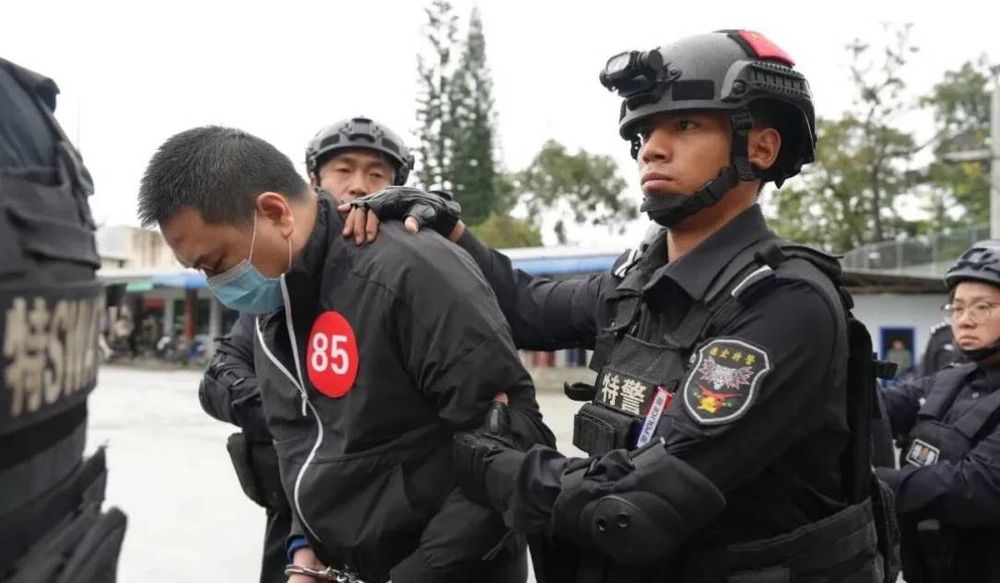Southeast Asian cyber fraud industry at ‘inflection point’ as it expands globally
The international community has reached a “critical inflection point” in the fight to contain Southeast Asia’s cyber fraud industry as it continues to metastasize into a global behemoth, the United Nations warned Monday.
Despite China- and Thailand-led crackdowns on scam compounds in Myanmar, the organized crime groups behind the industry are growing increasingly professional and deepening ties with other regions and illicit actors.
In February, Thai authorities cut off the power supply to several border areas of Myanmar where massive office buildings have sprung up to house workers who are often trafficked and forced to conduct so-called pig butchering scams. This type of fraud typically involves gaining the trust of victims over a long period of time, then deceiving them to invest cryptocurrency or other assets into a fraudulent scheme.
Later in February, several militia groups in the area freed more than 7,000 people from the compounds under growing pressure from China.
There have also been crackdowns in the Philippines and Laos. Nonetheless, organized criminal groups operating in Southeast Asia continue to diversify their illicit operations and to cement their money laundering networks, the UN’s Office on Drugs and Crime (UNODC) said in a new report.
“Whenever there is increased law enforcement attention to certain parts of the region, the issue has tended to move somewhere else — sometimes inside the country, sometimes outside the country,” said Benedikt Hofmann, UNODC acting regional representative for Southeast Asia and the Pacific.
Criminal groups are able to move operations seemingly overnight within the region in response to law enforcement activity, researchers said — and they are increasingly expanding abroad.
Asian criminal syndicates are developing “underground banking partnerships” with South American drug trafficking cartels and are known to have set up at least a few physical scam operations in countries like Peru.
In Africa, a handful of raids of compounds have occurred since the beginning of 2024, including in Nigeria, Zambia, Angola and Namibia, all of which involved the arrests of Chinese nationals.
“They’ve started to hedge and develop footholds and strongholds in some of those smaller and perhaps more vulnerable parts of the world,” said John Wojcik, a regional analyst with UNODC.
Another one of those areas is the Pacific islands, where criminal groups with connections to the Southeast Asian fraud industry have built up infrastructure like casinos and resorts and have taken advantage of citizenship-by-investment schemes on islands like Vanuatu to fend off potential extradition.
“That [expansion] is going to have big global implications in that not only are you going to see scam centers and those types of operations developing in these regions but it will also be jet fuel for local criminal groups who need to launder their money,” Wojcik said.
According to the UN, more than $37 billion was lost in East and Southeast Asia to cyber-enabled fraud in 2023, while in the U.S. victims of pig butchering scams reported $4.4 billion in losses. The agency previously estimated that more than 200,000 people had been trafficked into compounds in Southeast Asia. On Monday, Wojcik said investigators are increasingly observing voluntary participants in the industry, although enslavement is still rampant.
Behind the rapid expansion of cyber fraud originating from Southeast Asia are digital platforms that serve as one-stop-shop marketplaces for cyber fraudsters, offering laundering services, artificial intelligence scamming tools and fake passports. As opposed to dark web marketplaces, the platforms mostly operate through Telegram.
The most notorious platform, Huione Guarantee, remains a linchpin of the industry despite recent reports that it had lost its banking license in Cambodia. According to the UN, it now has more than 970,000 users, thousands of vendors and recently launched a suite of cryptocurrency products like a trading application, gambling platform and a stablecoin backed by the U.S. dollar.
James Reddick
has worked as a journalist around the world, including in Lebanon and in Cambodia, where he was Deputy Managing Editor of The Phnom Penh Post. He is also a radio and podcast producer for outlets like Snap Judgment.


